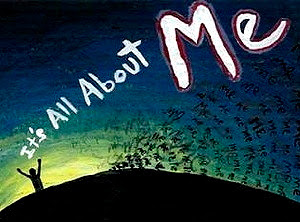"Welcome to the Warfare State"
by Doug Casey
"War is one of the few things that only the State can do. Indeed, as Randolph Bourne said, "War is the health of the State." Let’s briefly discuss the nature of the State to see why World War 3 is on the way.
The State is like any other living entity: its prime directive is to survive and grow. Bear in mind that the State - the government - is not at all the same thing as the country or society, even though it claims to be. It’s not "We the People"; it’s a distinct entity with its own discrete interests. And that’s actually too mild an assertion. While individuals and companies prosper by providing goods and services to others through voluntary exchange, the State specializes in coercion.
There’s nothing voluntary about the State. Its main products have always been pogroms, persecutions, confiscations, taxation, inflation, censorship, harassment, repression - and war. The State is not your friend.
Mass murder and wholesale destruction are bad enough in themselves. But in wartime, the State enables them with new taxes, new debt, draconian controls, and new bureaucracies. These things linger long after the war is over.
Worse yet, the State does these things with the sanction of the victim; the typical citizen has been taught that almost anything is justified by "national security." Anyone who would normally protest these depredations in peacetime soon learns to dummy-up when there’s a war for fear of being lynched for sympathizing with the invariably demonic enemy.
After the war - assuming a victory, of course - the State’s debt, taxes, regulations and general size never return to pre-war levels. They ratchet up to ever higher plateaus, requiring the State to do more of the same to justify its existence. Government programs, of whatever description, are almost never pulled out by their roots. At most, they’re trimmed, which has the same effect as pruning a plant, i.e., they’re encouraged to grow back bigger and stronger.
Why am I saying these scary things? Because we’re clearly heading towards a big war.
A Clear and Present Danger: I want to make a point in this article that many will find unpalatable, perhaps even incredible: In today’s world, the US military is nearly useless in countering potential threats from abroad. It’s actually a positive danger. And it’s not ready for a real war. If you’re looking for a comforting mainstream analysis, I don’t have much. Let’s start with the North Atlantic Treaty Organization.
NATO is a US government program that’s taken on a life of its own. Its original purpose was to defend against the Warsaw Pact. But although the Soviet Union and its allies ceased to exist as a military threat in the early 1990s, NATO has continued to grow. Despite agreements with Russia, it’s grown right to their border, even adding traditionally neutral states like Finland and Sweden.
Even if you assume that NATO doesn’t provoke WW3 over the Ukraine (
setting aside a discussion of who’s right or wrong and who really started it), the Chinese are likely next on the dance card. They can only see the allied Western states as pointing a gun in their direction. To them, NATO is a provocation to a cultural/racial war. NATO encourages them to make building their military a high priority.
So much for the "End of History." As long as nation-states exist, there will be violent conflict between them. But the way I see it, the nature of war, and even the nation-state itself, is going to change radically over the next 20 years. And, as has been the case throughout history, a prime mover is going to be technology.
Weaponry & Strategy: It’s an old saying: "Generals always fight the last war." That’s not because they’re (necessarily) stupid. But by the time a man gets a bunch of stars on his epaulets, you’re only assured of a competent bureaucrat with good political skills, not someone with a great military mind. Bureaucrats are not daring innovators; they do things by the book. That gives them CYA excuses and plausible deniability if things go wrong.
Apart from simple inertia, fighting the last war makes sense. For one thing, it’s what they know. For another, the equipment and tactics in question have been tested. For another, the weapons exist, and when a war starts, you basically have to "run what you brought."
Whether they can get away with fighting the last war depends mainly on whether there has been a significant change in technology. Up to early industrial times, one change in a lifetime was a lot. After all, how often do major innovations like the stirrup or gunpowder come along? But since the advent of industrialized warfare with the American conflict of 1861-1865, changes have been very rapid, and the rate of change is accelerating at warp speed.
The military is not unaware of this; as I said, they’re not stupid. In fact, today’s officers are highly educated; almost all are college graduates, for what that’s worth. Most field grade officers have done graduate work as well. That’s one reason the US emphasizes high-tech weaponry.
The military is throwing ever greater amounts of money on larger, more complex, and vastly more expensive pieces of equipment. The idea is to stay technologically ahead of any potential enemies. Maybe the US can maintain its lead as long as it’s a simplistic scenario of our tanks, planes, and ships against theirs. But the chances of things staying that simple are close to zero. The whole paradigm is about to change.
This is true for several reasons: today’s "hi-tech" weapons (F-35 fighters, Abrams tanks, aircraft carriers) are already obsolete. They’re certainly a nightmare to maintain and keep personnel competent. New drones, missiles, and torpedoes are both superior to and vastly cheaper than conventional weapons. Biological and cyber weapons obviate them all. If they’re deployed in earnest, it’s "Game Over".
Projecting force worldwide with 800 bases, $100 million aircraft, and carrier fleets, is ruinously expensive, especially for a bankrupt government that’s "on tilt". But that’s the essence of American doctrine. The concept of "defense" itself is obsolete for a nation-state. Let’s look at this in a bit more detail.
1. Today’s "Hi-Tech" Weapons Are Obsolete: Starting with a blank piece of paper, during World War II, the US developed one of the conflict’s finest fighters, the P-51 Mustang, in 117 days and produced it for $50,000 a copy - say about $500,000 in today’s dollars. It’s true that the F-35 is considerably more complex, but relative costs should have been dropping because of advances in materials, techniques, computers, robotics, and such, not escalating over 100-fold in real terms. A friend who knows about these things tells me that every hour of operating time on an M-1 Abrams requires 8 hours of maintenance. For a F-16, it’s 20 hours. It shouldn’t come as a surprise that only 30% of F-35’s are flyable at any given time.
Unsustainable runaway costs are apparent everywhere. When you’re paying upwards of 15 billion dollars for an aircraft carrier (without any aircraft or auxiliary ships), $500 million for a B-2, and $7 million for a tank, you can’t afford to buy very many of them. And you absolutely can’t afford to lose any. Apart from the costs, it takes many months or years to produce more.
On the other hand, despite sophisticated defense armaments, a swarm of cheap sea-skimming missiles might sink a carrier and its 5000-man crew - not to mention a single hypersonic missile. A hit with a cheap shoulder-fired missile can bring down any low-flying aircraft, and at $10,000 a copy, the battlefield can be peppered with them. Fire-and-forget missiles transform tanks into expensive iron coffins; ultra-cheap commercial drones can drop explosives anywhere. Cheap, accurate, small, and numerous missiles are the modern equivalent of Sam Colt’s six gun, which not only made the little guy equal to the big guy, but superior - because big guys are big targets. Drones the size of bumblebees will seek out highly trained and very expensive infantrymen.
Like a small person who knows he shouldn’t fight a giant on his own terms, US adversaries will use the military equivalent of Aikido, turning the opponent’s own might against him. The Houthis in Yemen recognize that it costs the Americans millions to blow up a mud hut, which is, in popular parlance, "unsustainable." In addition to creating more enemies. They see themselves as the under-gunned rebels in Star Wars when they destroy the Empire’s Death Star, substituting daring and cleverness for the enemy’s overwhelming physical capital.
2. Today’s Conventional Weapons Will Soon Be Totally Obsolete: This whole discussion will be completely academic in a generation when nanotechnology becomes practical. The idea is the creation of machines and supercomputers atom by atom. The essence of the technology is making things larger from a molecular level rather than trying to miniaturize them.
It’s likely to be the most important event in human history, including the conquest of fire. It will change the very essence of life itself totally, irrevocably, and unrecognizably - including the nature of armed conflict. An excellent, albeit conservative, description of a nanotechnic future is offered by Neal Stephenson in "Diamond Age," which I highly recommend. Nanotech weapons will be available to everyone after a delay, much as gunpowder was in the 15th century. That assumes, of course, that the cyber and bioweapons now available to everyone don’t obviate the whole question.
In the meantime, the trend to miniaturization will continue apace. Microchips and other computer components are commercially available everywhere, and they’re cheaper and more powerful every day. The next generation of weapons will be highly miniaturized robots, weighing at most a few pounds apiece, probably designed with running or flying insects as models. Construction will be facilitated by the use of off-the-shelf electronic products. That's in addition to full-size Terminator-style robots, AI-piloted and armored vehicles.
A $50 billion fleet can be devastated by a few score missiles; a formation of soldiers wouldn’t stand a chance against an attack by thousands of very cheap microbots. Just as a hundred tiny ants can easily overwhelm a scorpion, cheap and tiny machines will turn current military behemoths into useless artifacts. Any country will be able to have a truly formidable military for a fraction of today’s costs.
3. Overextension as a Formula for Disaster: Fighting a war next door is one thing; doing so on the other side of the world is something else again. Fuel, materials, and troops are very costly to transport and maintain at the end of a 10,000 mile airlink. Doing so is likely to result in what has been called "imperial overstretch"; if you try to cover all the bases, you become overextended, vulnerable, and bankrupt. The US currently maintains a military presence of some description in about 100 countries, and almost all of those emplacements are an active provocation to somebody.
Question: If social spending cannot or will not be cut, with $1 trillion in interest that must be paid each year, debt growing at $2 trillion per annum, and money already being created by the trillions annually, what is going to give when times get tough? Will the government get involved in yet another serious foreign military adventure? Of course. They see it as a solution, not a problem.
A poor country can fight a war using human capital - like Korea in the 1950s or Vietnam in the 1960s. But a country like the US is almost forced to use financial and technological capital because human life has a high price tag for us. That makes for a problem when we don’t have the financial resources to maintain a military that’s both very expensive and ineffective.
Can the US afford to fight a continuous war in the alleged search for continuous peace? The experience of previous empires, from the Romans on, suggests the answer is no.
America’s best defense is a strong economy with lots of technological innovation, not an overweening military. If the US government, with its taxes, regulations, currency inflation, and welfare, were to disappear, the country would experience the greatest and most genuine boom in world history. In a decade, even China would appear as relatively insignificant as Nigeria today. It would be almost impossible to threaten a genuinely advanced America.
It’s equally important not to give any government or group a reason to launch an attack. People the world over love the idea of America; they love the culture, the cars, the food, the freedom, you-name-it. They like the good things American corporations used to make. They don't mind good-natured, free-spending American tourists.
What they don’t like is US boots on the ground or in their airspace, fomenting coups to install "democracy." If Washington DC ceased to exist, the other 96% of the planet’s population would have no more incentive to strike America than Costa Rica.
Of course, I may be anachronistic in that view. Over the last 50 years, while the US was building an arsenal to fight Russia and China, a different threat has been building. The Muslim world, which has been in what amounts to a Forever War with the West for 1400 years, is cyclically on the march again. They have two very important weapons.
One is firm and fanatical beliefs. The West, on the other hand, has lost all confidence; it’s flaccid and believes itself to be evil. As Napoleon said, in warfare, the psychological is to the physical as three is to one. The prognosis for America and Europe is not good. They’ll be conquered both psychologically and by migration. America’s bloated military will be useless.
Islam’s second weapon is many hundreds of millions of young Mohammedans. From a military viewpoint, they are infiltrating the demographic and political structure of the West and changing it. And if things ever go kinetic, scores of millions of young fighters are cheaper and more effective than expensive hi-tech hardware. There’s much more to be said on
the topic of the Forever War with Islam.
Where this is Going: As a reader, I presume you agree with me on some of the above or are at least willing to listen to the argument with an open mind. I suspect that’s not the case with most Americans, however. They view the military as a national treasure or even an icon.
On one level, I can understand this atavistic attachment. As a kid I wanted to go to West Point - but was cured of the temptation by four years of military high school. In college, during the Vietnam War, I was signed up for the Marines PLC program (yes, I was a slow learner). But then I simultaneously drew 365 of 366 in the draft lottery (it was a leap year) and was medically rejected as 1-Y because I had broken my right leg in 17 different places only a year before. At that point, I figured the cosmos was trying to send me a message like, "If you really want to go to Vietnam, do you really need the government to pay your way?"
American’s warm feelings toward the military are largely misplaced. And I speak as someone who likes soldiers. Whatever its star-spangled history, the US military no longer serves much of a useful purpose because of the ongoing evolution of technology. Worse, it’s become an active danger. What’s left of its esprit de corps is being eroded by DEI, LGBT, and anti-whiteism. Soldiers’ first loyalty is naturally to each other - although that’s been weakened by Wokism. Their next loyalty is to their employer, who they trust less and less. Their third loyalty is to those they supposedly protect and serve, but they have less and less in common with them.
Combine those problems with others I’ve listed, and it’s no wonder the militaries of Western countries are becoming less and less reliable and effective. Not good; at the very time their governments are provoking war with Russia, China, and smaller counties.
Let me sum things up. US foreign policy is putting this country on a collision course with any number of other countries. The US military is in a position to fight the last war, but not the next one, because the weapons the US is loading up on are basically dinosaurs. And like dinosaurs, they’re unbelievably expensive to feed. The likely bankruptcy of the government during the next economic downturn will make feeding them near impossible.
When the next conflict occurs, it’s likely to do extensive damage in the US itself. It will be hard to insulate yourself from World War 3. It makes the Southern Hemisphere look better all the time.
Your first line of defense, of course, is common sense survivalist stuff. You know the drill: buy gold, silver, and get a survival retreat with a year’s supply of food, fuel, and ammunition. Keep gaining skills and knowledge. Try to become self-employed. Surround yourself with reliable, like-minded associates. Keep a low profile with the authorities. And, I might add, enjoy yourself; don’t take things too seriously. We’re dealing with the human condition."




















